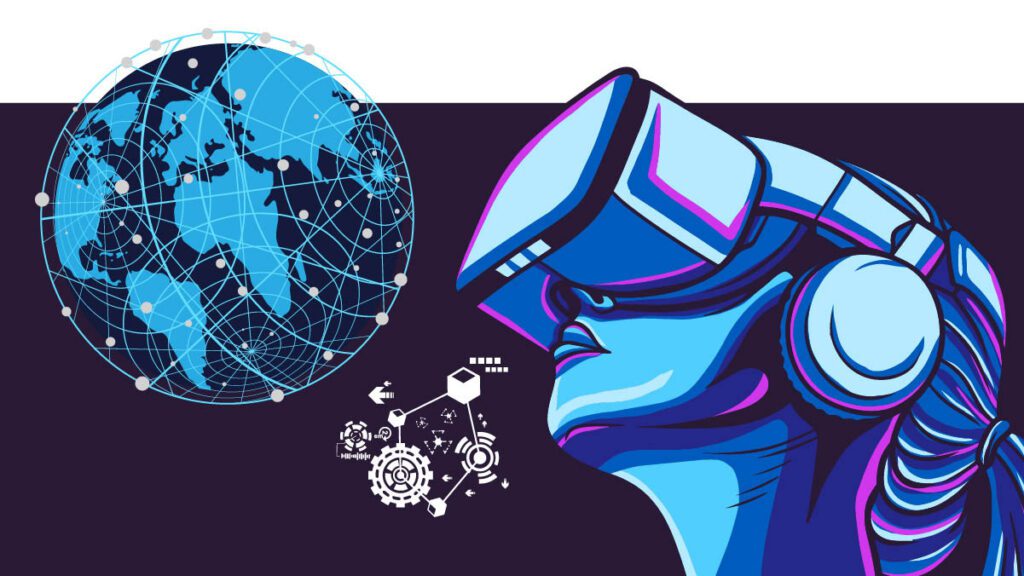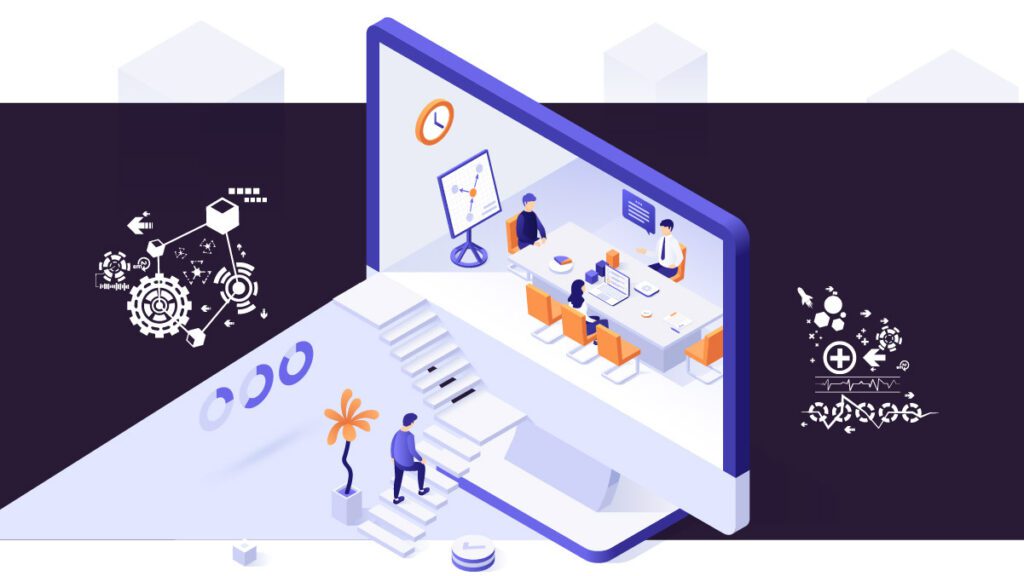
The digital world has been witnessing intermittent events that change how we interact, access information, complete our daily activities, and basically live our daily life beyond our physical connections. Probably the first prominent introduction was the Internet and the world wide web in the nineties. The next awaited event is the advent of the Metaverse, the new virtual world that would take the digital experience to a whole new level. Although not properly defined yet, many players are already gearing up to participate in the next big thing. Among others, telecom operators have a central role in driving it forward. The expected role of telecom operators is not only as enablers of the new technology, but as creators of the experience itself. For once, operators will actually be within the Metaverse and not behind it.
Telecom Operators as Enablers of the Metaverse
The creation of the Metaverse environment requires stringent requirements in terms of communications and computing. The provision of an immersive user experience, real-time interactions in addition to catering for millions of users and content creators concurrently, necessitates minimum guarantees in terms of latency, data rates and computational resources. The current computing and communications infrastructure is not yet ready for a fully-fledged Metaverse deployment.
High latency is identified as the main obstacle to a proper “Metaversial experience”. The main precursor to the Metaverse is today’s gaming industry. The multiplayer gaming market is set to grow by USD 21.25 billion in the next five years according to an analysis by Technavio. This market itself will also constitute the basis of the Metaverse once the ecosystem is properly created. The main gaming performance indicator is latency, as any experienced lagging could make the game useless, and this is only with two-dimensional rich content. When three-dimensional scaled-up experience is considered, guaranteeing proper delay for such applications becomes extremely challenging.
The Beyond-5G Race: An Opportunity for Telecom Operators?
The current status of telecom infrastructure around the world is inadequate for the expansion of Metaverse application. 5G is still at its infancy. Most countries are still hustling to deploy the non-standalone flavor of the latest standard that relies on the existing 4G networks, while other operators have started to unlock the proper experience through standalone 5G networks that rely on a dedicated 5G core instead.
The Metaverse can be seen as an opportunity for operators to distinguish themselves as enablers of the for the upcoming technology. Work on upgrading current 5G networks towards the eventual arrival of 6G networks around 2030 should fit perfectly within the timeframe for the large-scale deployment of Metaverse applications. The current arms race for 5G sovereignty could become as race to lead the drive for Metaverse solutions.
Telcos vs. Techcos: The Race for Better Computing Services?
The second main component towards a true Metaverse experience is through a proper computational environment that would make processing tasks related to extend reality applications possible. Two trends are currently being observes in the telecom industry. Telecom operators (telcos in general) have been investing in data centers to usher digital transformation endeavors while technology companies (techcos) have entered the market with their legacy in providing cloud computing solutions to benefit from the 5G boom. The high reliance of the Metaverse on proper computational resources would also give telecom operators the opportunity to become “computing services providers”. Their further involvement in integrating mobile edge computing solutions with their telecom infrastructure will provide them with a notable advantage to close the deal.
The Role of Telecom Operators in Artificial Intelligence and Cybersecurity
The last segment where telecom operators can stand out is through cybersecurity and advanced analytics offerings. The always-on property of the Metaverse requires continuous analytics of the data which is collected in real-time while ensuring high alertness towards cybersecurity threats. Currently, regulatory authorities are pushing the operators to strengthen their cyber shield through improved policies. This is an area where operators can become providers for advanced cybersecurity solutions. The additional investment in AI solutions is another avenue to reserve their seat in the next revolution.
In a nutshell, the wireless evolution has pushed operators into areas that are not only needed for communication service provision. The additional investment into these key areas could place them in a leading position as the enabler/creator for the Metaverse.

Telecom Operators as Users of the Metaverse
In addition to their role of concretizing the vision into reality, telecom operators can benefit from the new technology changing the way the operate, and possibly optimize their operations. Although the Metaverse is not yet clearly defined, the telecom operators can help build the concept by incorporating the use cases that are of benefit to them.
Digital Twins
Digital twins could integrate the Metaverse instead of being an application on its own. This solution is probably the best futuristic technology to drastically reduce costs and optimize the performance at the same time. The evolution of wireless communications involves an increased complexity in the management and planning of networks, with a large number of parameters to be optimized. Akin to its applications in healthcare and other industries, operators can massively improve the deployment and upgrade of their networks with a lower need for re-optimization.
Meeting and Training Rooms
The Metaverse could provide a virtual working space similarly to the physical one, improving the experience of online meetings done through online collaborative platforms such as Microsoft Teams and Zoom. The engagement between participants would also be more realistic in that sense. Costly and lengthy trainings can happen in a more natural way. Traveling and moving equipment would no longer be needed as well, replaced with digital avatars.
Korean operator SK Telecom launched its Metaverse platform “ifland” that creates social and virtual meeting environment using its cutting-edge 5G network, a demonstration of force to show that its telecom infrastructure is ready to embrace the new revolution. German operator Deutsche Telekom has even decided last month to bring the Korean platform to Europe.
A Metaverse-oriented operator, named “Decentralized Telecommunication Operator” has been created earlier in May. Using blockchain technology, which should be the basis for Web 3.0, the meta-company has developed a method to exchange phone numbers as non-fungible tokens (NFTs). Another company, Telephony Communications Technology has announced the launch of TCTx with aims at developing smart cities in the Metaverse.
Customer Service
Customer service will be another important use case of the Metaverse. Instead of relying on phone support, chatbots, and time-consuming visits to repair centers, the virtual platform could provide a simple medium where any maintenance can be done through extended reality applications that combined a digital twin of the phone with a sort of holographic communications.
Summary
The relation between the Metaverse and the operators can be summarized as a give and take relationship. The role of telecom operators is central to the creation of the Metaverse. Without their efforts, the new platform will remain as a sci-fi concept. The communication, computing, storage, and analytics infrastructure are core elements to drive the virtual world forward. On the other hand, operators can see several benefits from the new ecosystem as costs and time delays can be avoiding by relying on the Metaverse to complete most of the essential, yet complex tasks.
“Inside Telecom provides you with an extensive list of content covering all aspects of the tech industry. Keep an eye on our Telecoms, Technology, and Metaverse space to stay informed and up-to-date with our daily articles.”